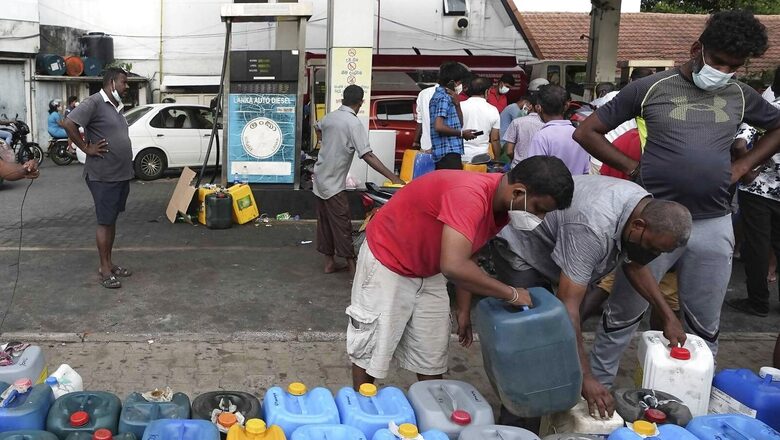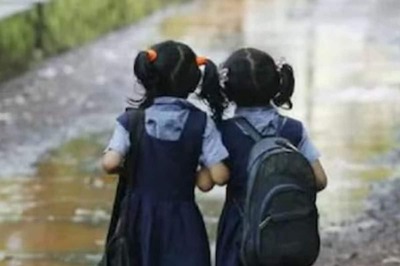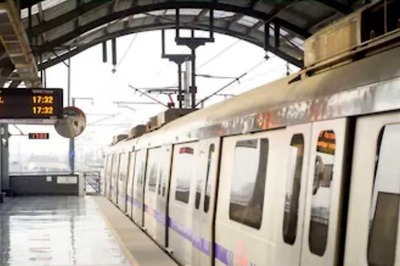
views
Sri Lanka is facing its worst economic crisis in decades, with all Cabinet ministers except the Prime Minister and President resigning a day before amid nationwide protests. The island nation is faced with severe shortages of food, fuel and other essentials. A record inflation, power crisis, and severe shortage of foreign currency has left PM Mahinda Rajapaksa‘s country in the most horrendous downturn since its independence in 1948. The country also imposed a 36-hours-long curfew to keep protests at bay, on March 31. However, this crisis is not sudden at all, and was in fact brewing since two years with several rating agencies warning about such a situation in the past.
Here are 10 key things you need to know about Sri Lanka economic crisis:
– As per news agency AFP, trading was halted in Sri Lanka’s stock exchange early on Monday. This was done only seconds after it opened on Monday when the blue chip index dropped 5.92 per cent, triggered by the resignation of the Cabinet. The S&P index fell more than the five per cent needed to trigger a circuit breaker that halts trading for half an hour, the Colombo Stock Exchange said.
– Not only all the 26 Cabinet ministers, Ajith Nivard Cabraal, the Governor of Sri Lanka’s Central Bank, has also tendered his resignation. “In the context of all Cabinet Ministers resigning, I have today submitted my resignation as Governor, Central Bank, Sri Lanka to President Gotabaya Rajapaksa,” Cabraal tweeted.
– Sri Lanka economic crisis had resulted in 13-hour-long power cuts over several amid a severe fuel shortage until India barged in to supply 40,000 MT of diesel to the island nation. This came as a little relief for the common people as the Ceylon Electricity Board (CEB) announced two-hour power cuts from Sunday.
– However, the Public Utilities Commission of Sri Lanka (PUCSL) has announced that on Monday, some areas will experience power cuts of five hours.
– The inflation in Sri Lanka is at its worst stages at present, with prices of basic commodities soaring miles high. The prices of vegetables have doubled in the recent weeks, while staples like wheat and rice are being offered at Rs 220 per kg and Rs 190 per kg, India Today reported.
– The prices of other basic commodities have skyrocketed too, with a kilogram of sugar being sold at a whopping Rs 240, while one litre of coconut oil costs as much as Rs 850 in the country. Not only this, there is a severe shortage of medicines.
– Sri Lanka has been unable to import fuel on its own, as the government doesn’t have adequate forex reserves to pay for import of fuel. “We have already instructed officials to shut off street lights around the country to help conserve power,” Power Minister Pavithra Wanniarachchi said.
– The economic crisis of Sri Lanka can be attributed to economic mismanagement by successive government, Reuters reported quoting analysts. “Sri Lanka is a classic twin deficits economy,” said a 2019 Asian Development Bank working paper. “Twin deficits signal that a country’s national expenditure exceeds its national income, and that its production of tradable goods and services is inadequate.”
– The current economic crisis in Sri Lanka can also be attributed to the deep tax cuts promised during the 2019 elections by president Gotabaya Rajapaksa. The tax cuts have only accelerated Sri Lanka economic crisis, whose foreign exchange (forex) reserves have depleted by 70 per cent to $2.3 billion as of February in the past two years. The country has debt payments of around $4 billion through the rest of the year.
– The skyrocketing retail inflation rate of 17.5 per cent in February was accelerated by Sri Lanka last month devaluing its local currency. The country also imposed several restrictions of imports of hundreds of items that disrupted value chains and pushed up consumer prices.
Read all the Latest Business News and Breaking News here




















Comments
0 comment